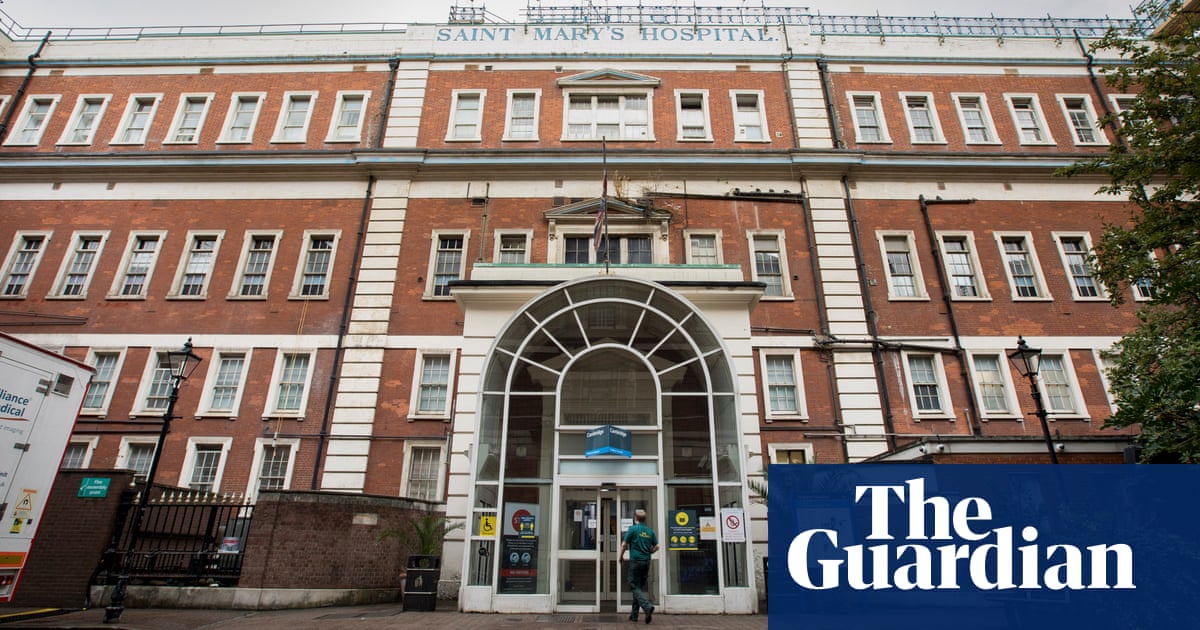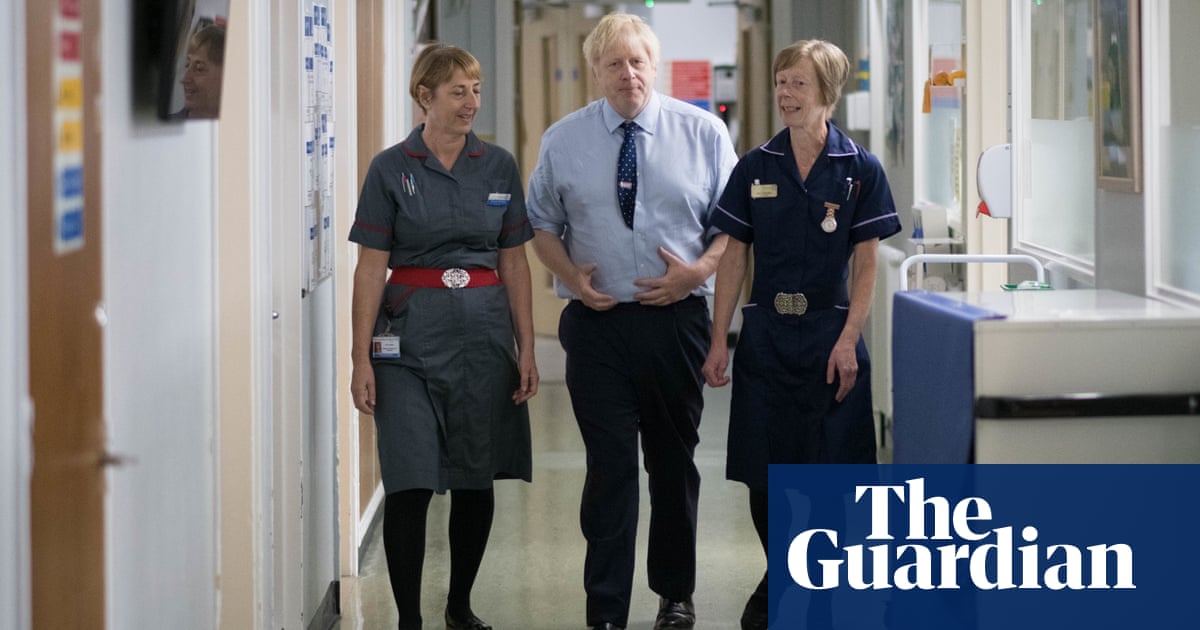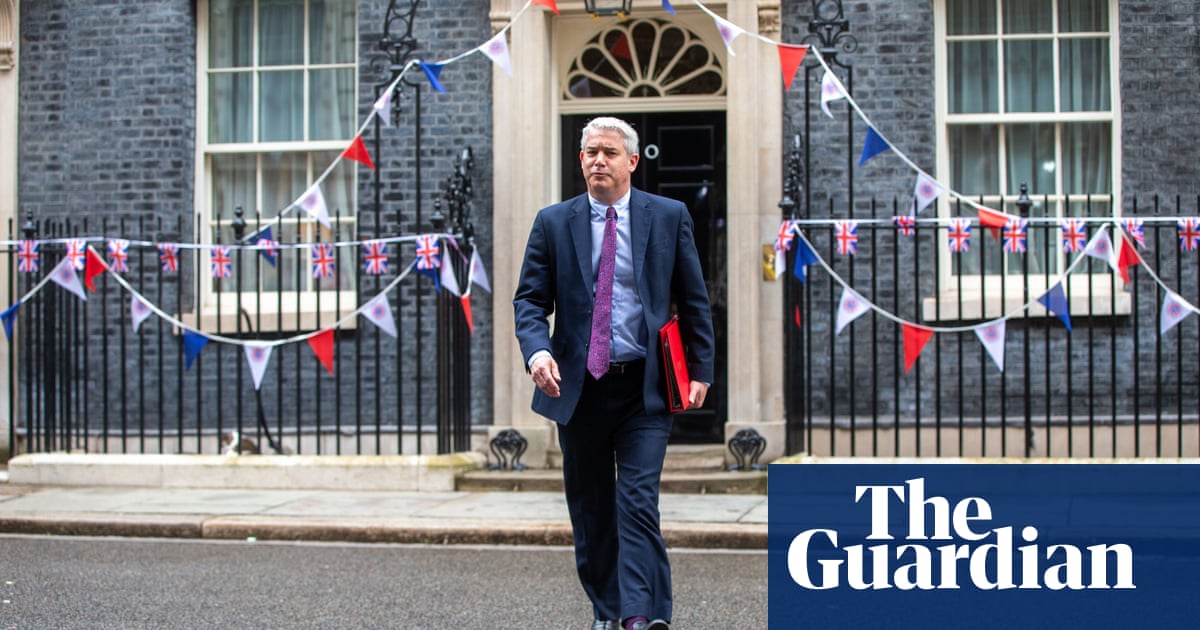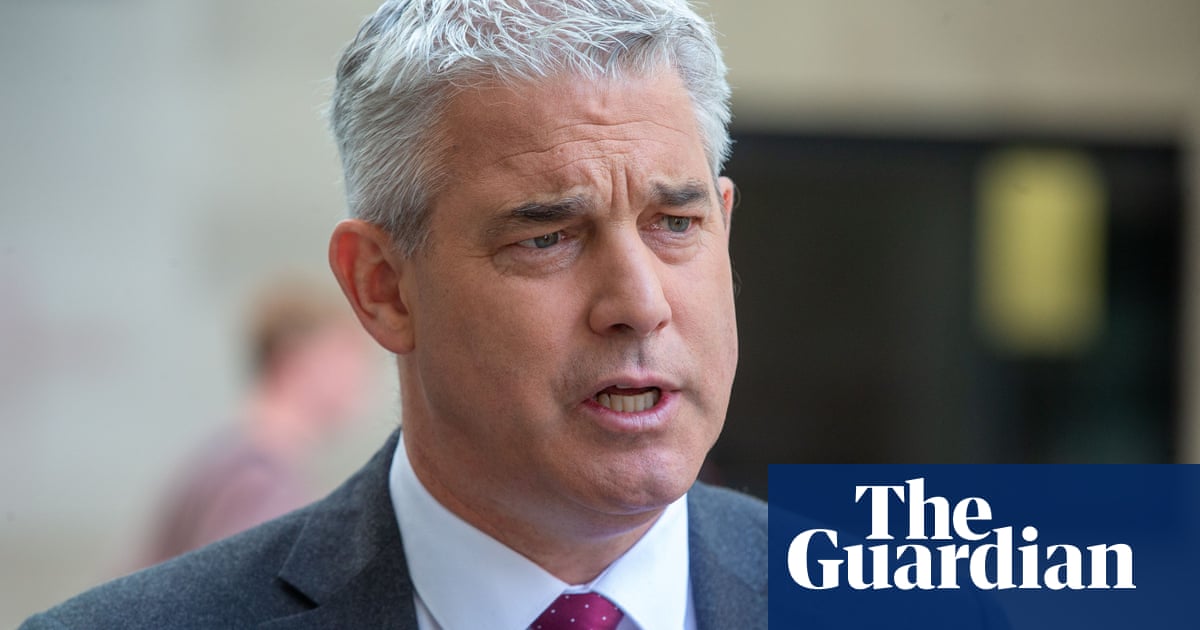
Ministers have admitted eight of the “40 new hospitals” they pledged to build by 2030 will be delayed into the next decade, leading to claims of another broken promise that will leave the NHS in England “crumbling” and damage patient care.
Long-planned new facilities in London, Sussex, Lancashire and other parts of England, to replace hospitals that in one case date back to the 1840s, have been downgraded by Steve Barclay.
The health secretary’s U-turn brought criticism by Conservative and opposition MPs, along with concern that NHS staff will have to keep treating patients indangerously outmoded hospitals beset by age-related problems.
NHS bosses also voiced deep frustration with Barclay for allocating only £20bn to pay for the whole of the revised list of 40 new projects – only just over half the £35bn the government’s own estimates said would be needed.
Barclay insisted the government was honouring Boris Johnson’s often-repeated pledge in 2019 to build “40 new hospitals”. But he defended the decision to drop the eight and replace them with others by highlighting spiralling construction costs, and the danger faced by staff and patients in five hospitals where roofs and ceilings are at risk of falling down because the concrete involved is well past its expected 30-year lifespan.
Those five, and three schemes for mental health facilities in Surrey, Derbyshire and Merseyside, have been added to the government’s new hospitals programme, in effect replacing the eight that have been pushed back beyond the 2030 deadline.
They include St Mary’s hospital in Paddington, west London, parts of which date back to 1845. Over the last year ceilings have collapsed in two wards, sewage has leaked into the pharmacy and parts of the Cambridge wing – the oldest part of the hospital – have had to be mothballed because the floor was no longer strong enough to support the clinical services there.
Prof Tim Orchard, the chief executive of Imperial Healthcare NHS trust, which runs St Mary’s, said putting off replacing the 178-year-old hospital would be “hugely damaging”. It has been planning for years to replace St Mary’s with a modern facility.
“If we waited until 2030 to start building works at St Mary’s it would become impossible to patch up our oldest facilities, many of which house key clinical services. As the provider of London’s busiest major trauma centre and host of the NHS’s largest biomedical research centre, that would be hugely damaging for the health and healthcare of hundreds of thousands of people,” he said.
Long-planned new hospitals in Nottingham, East Sussex, Hampshire, Berkshire, Preston and north Devon have also been delayed.
Barclay’s climbdown came on Thursday, when he made a long-expected Commons announcement about the programme. It has been plagued from the start by delays, frustration at the lack of funds available to demolish out-of-date buildings and uncertainty over when replacements would finally open.
He admitted in a letter to MPs on Thursday that “a small number of existing schemes … may face delivery challenges in completing all construction work by 2030”.
Critics claim the delay to the eight rebuilds is yet another broken Conservative pledge on the NHS. Daisy Cooper, the Liberal Democrat health spokesperson, condemned the “disgraceful broken promise to communities across the country. Frankly 2030 is pie in the sky.”
Barclay said recently that hospitals had missed a target to ensure that no patient had been waiting more than 18 months for an operation. And ministers have conceded that the promise to boost GP numbers in England by 6,000 by 2024 – another 2019 manifesto promise – will not be met either.
Matthew Taylor, the chief executive of the NHS Confederation, said health service bosses were “hugely frustrated” that the eight much-needed rebuilds have been “kicked into the long grass”.
He welcomed Barclay’s confirmation that 40 hospitals will be built by 2030. But the long delay before construction can begin at the eight delayed hospitals will in the meantime make them less productive and less able to tackle the 7.3 million-strong NHS backlog, he added.
Many of the delayed projects affect residents in parliamentary seats that could pose a headache at the next election for the Conservatives. They include the Tory marginal of Lewes in Sussex and also Tiverton and Honiton in Devon, which the party lost to the Liberal Democrats in a byelection last year.
One unhappy Tory MP in a marginal seat said: “Voters heard the promises we made, but they won’t believe it until they see it.”
Labour accused the government of “once again over-promising and under-delivering”. Wes Streeting, the shadow health secretary, said it was not clear ministers had the money or time to fulfil their pledge and warned the NHS estate had been left “crumbling” after 13 years of neglect. “The Conservatives literally didn’t fix the roof while the sun was shining and now patient safety is at risk,” Streeting added.
To avoid accusations the 2019 manifesto commitment would be missed, Barclay added five further hospitals to the list and three as-yet unidentified mental health schemes that will be worked on more speedily.
The prioritised builds are made from reinforced autoclaved aerated concrete (RAAC). The cheaper, lightweight form of concrete was used in the building of many schools and hospitals in the 1960s, 1970s and 1980s but is now well past its intended 30-year lifespan.
The risk is so acute that some hospitals have deployed steel stilts to stop ceilings and roofs from falling down. The Queen Elizabeth hospital in King’s Lynn in Norfolk – which is widely used by constituents of the former prime minister Liz Truss – has deployed about 1,500 such supports, for example.
NHS bosses criticised Barclay for allocating far too little money for the 40 sites. He told MPs that the NHS would receive £20bn to cover the cost. But documents obtained by the Health Service Journal last month showed that the total costs were likely to be around £35bn.
The £20bn “falls considerably short” of the true sums needed, said Taylor. Julian Hartley, the chief executive of hospitals group NHS Providers, also voiced doubt about “whether the extra funding is enough to meet trusts’ commitments to their communities and patients’ expectations”.
Dan Poulter, a Conservative MP and NHS hospital doctor, said the announcement was a “welcome boost” for the health service and patients. However, he added: “I suspect some additional money will have to be found to get some of the hospitals built.”












